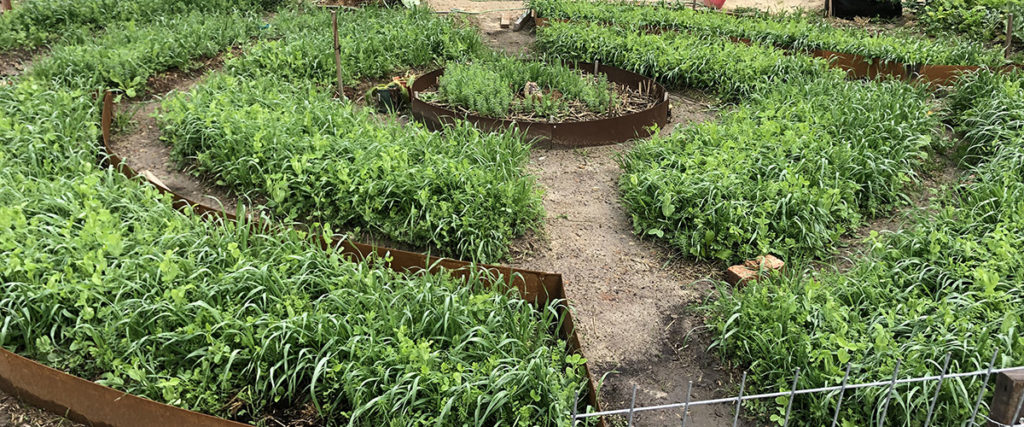Garden Update – July 2023
The driving rain is a good indication that we are now well into Makuru, the coldest and wettest time of the year. In harsh weather conditions, one of the most important things you can have in place are living plants to protect and feed the soil environment, and the life that resides within. It’s heartening to see the enthusiasm with which residents are embracing an Ecovillage gardening culture and have gone about developing and planting out their lots over the past season. With the groundwork done, we can afford to hang up our pitchforks for the next couple of months.
Like eggs and chickens, it’s hard to say what came first, healthy soil or healthy plants. We know that good soil grows healthy plants, but without plants, soil would be little more than weathered rock particles. Why is this so?
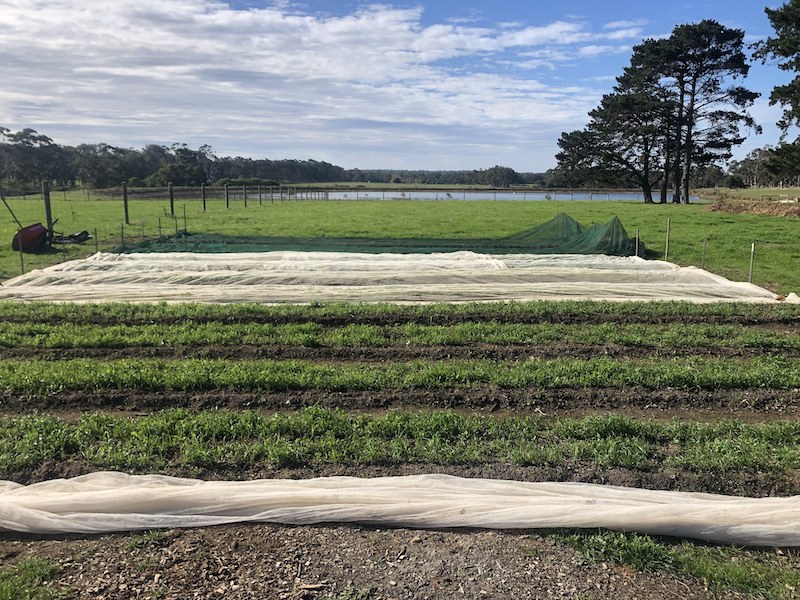
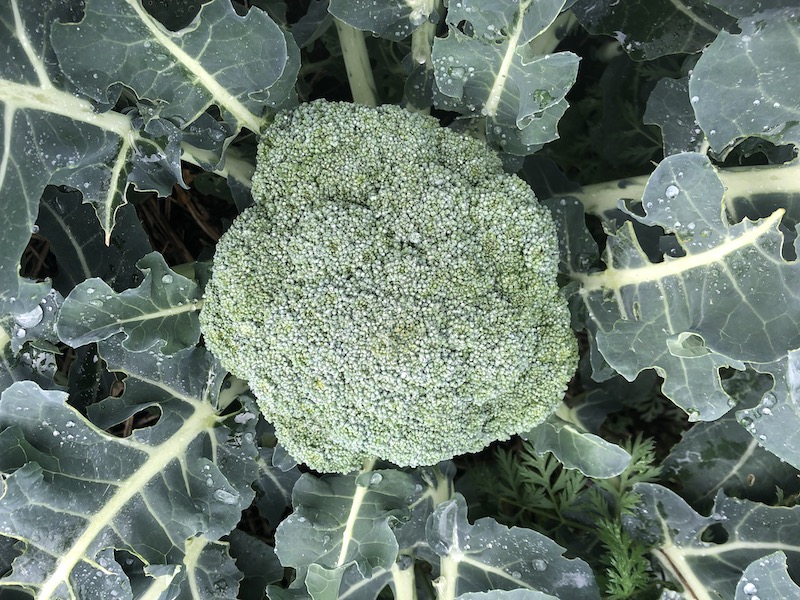
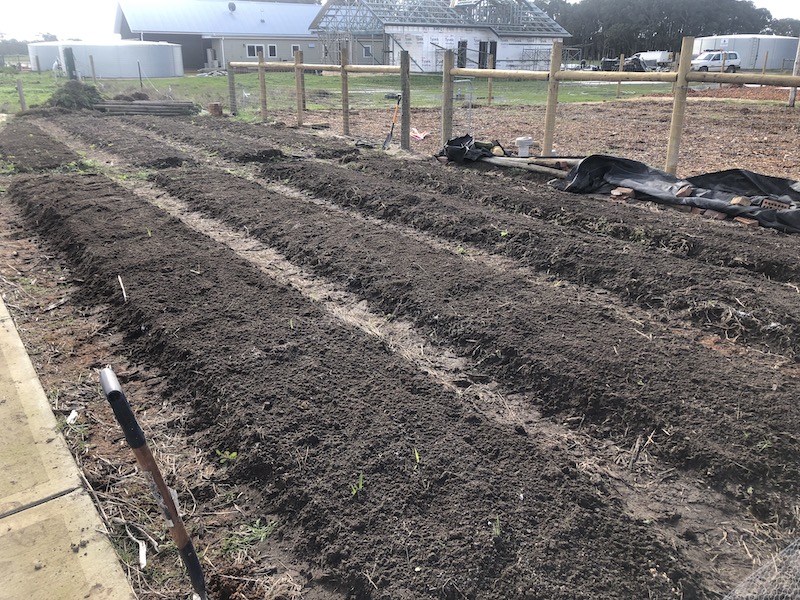
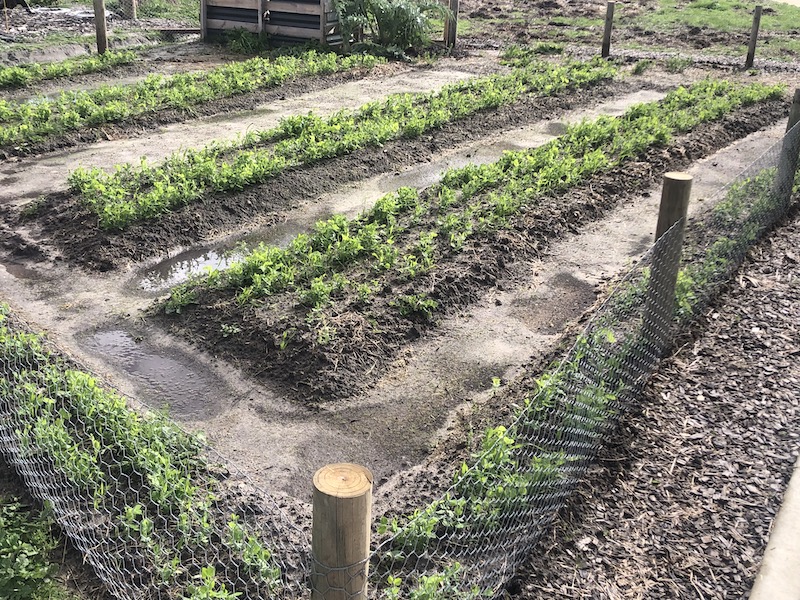
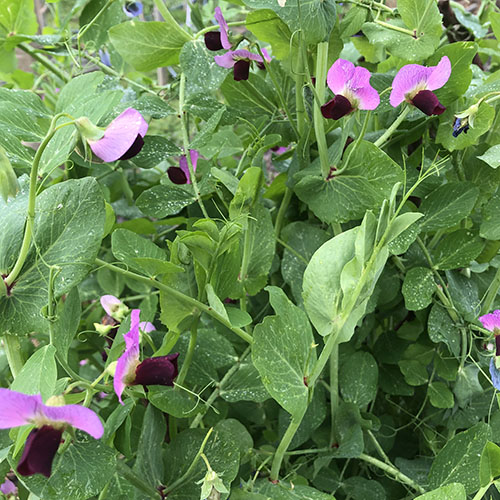
Vegetative species are unique, in that they are the only organisms capable of carrying out photosynthesis, i.e. harvesting energy from the sun. In this amazing process, carbon dioxide from the air, water from the soil and energy from sunlight are combined to produce carbohydrates. Carbohydrates are not only the predominant source of energy that living things gets by on, but are also the initial building blocks of living matter. We all need our share.
In exchange for this valuable compound, there are a diversity of organisms that offer up goods and services that are of benefit to plants, after all, it’s in their best interests to look after the hand that feeds them. These include bacteria, fungi, animals (large and small) and everything in between. Collectively, they do handy things like fix nitrogen and liberate soil minerals, cycle organic material, structure soil to enable better hydration / gas exchange / stability, fend off pests and diseases, carry out pollination and so on.
In this reciprocal arrangement, life begets more life, but it all starts with vegetative organisms. Regardless of how much digging you do or how much fertiliser you put out, unless you have growing plants to generate the carbohydrates that drive all this activity, living systems ultimately go backwards. We may bring in organic materials from elsewhere to build soil, but this is neither as effective or as sustainable a solution as living plants and their microbial and animal associates.
Are there any bare spots in your garden? If so, find suitable types of plants to grow there, then plant and care for them. Love ‘em or hate ‘em, broad beans are a good option for Makuru, so are deciduous fruit trees. By getting those plants in the ground, you do your bit to bring another patch of weathered rock particles back to life.

